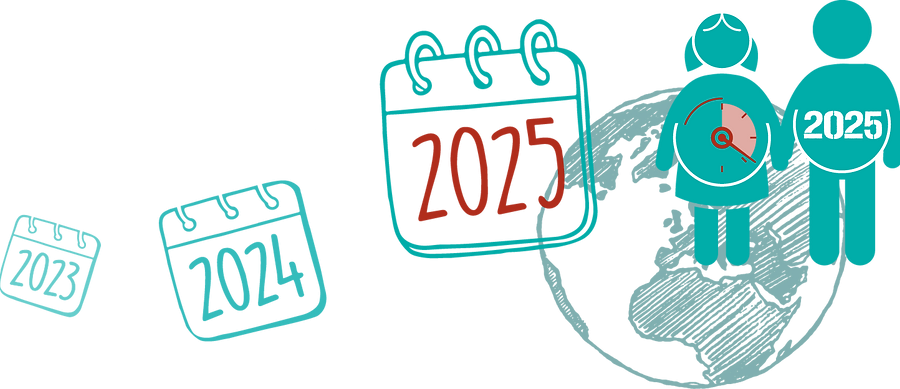World Obesity Day 2016
World Obesity Day 2016
Child and adolescent obesity has risen rapidly around the world, with few countries taking action against this damaging health issue which affects later health, educational attainment and quality of life.

Childhood Obesity
The prevalence of infant, childhood and adolescent obesity is rising around the world. While levels are plateauing in some countries and regions, the absolute numbers continue to rise, particularly in low- and middle-income countries.
Obesity can negatively impact on a child’s immediate and long-term health, educational attainment and quality of life. Progress towards ending childhood obesity has been slow and inconsistent around the world.
In May 2012, the 65th World Health Assembly endorsed the Comprehensive Implementation Plan on Maternal, Infant and Young Child Nutrition (ref 2) which had six global nutrition targets to be achieved by 2025, including Target 4: No increase in childhood overweight, which applied to infants and young children up to age 5 years.
In May 2016, the 69th World Health Assembly committed to establishing national strategies to end childhood obesity as recommended by the WHO Commission on Ending Childhood Obesity.

The WHO Commission on Ending Childhood Obesity (ECHO)
The WHO Commission on Ending Childhood Obesity was established by the WHO Director-General Dr Margaret Chan in 2014. This Commission was tasked with producing a report specifying which approaches and combinations of interventions are likely to be most effective in tackling childhood and adolescent obesity in different contexts around the world. The final report was published in January 2016.
Specific Recommendations Made Across 6 Pillar
- Promote intake of healthy foods
- Early childhood diet and physical activity
- Promote physical activity
- Preconception and pregnancy care
- Health, nutrition and physical activity for school-age children
- Weight management


Our Calls to Action
There are 3 clear areas where change needs to happen - outlined below. We have also put our main calls to action into a briefing paper. It would make a useful inclusion if you are writing to your Health Minister.
1. Governments need to strengthen their leadership to prevent, manage and treat childhood obesity with national childhood obesity strategies
These should:
-
Be based on the WHO ECHO report recommendations, as a minimum standard
- Include inter-departmental actions led by ministries of health.
- Use SMART actionable measures to meet the WHO targets on obesity and activity, integrated with the Decade of Action on Nutrition and the SDGs.
- Monitor and enforce all stakeholders’ commitments.
- Support national guidelines for clinical care and management of obesity in pregnancy, infancy and childhood, with the resources for their universal application
2. Local services need to take action to prevent childhood obesity
This includes providing:
- Health-promoting schools which offer high standards of nutrition, physical activity, health education and community involvement.
- Primary health care for women including weight guidance in pregnancy and support for breastfeeding.
- Support for healthy infant growth, including maternity leave, baby-friendly hospitals, breastfeeding counsellors, mother and child community facilities.
3. Health services must take action to manage childhood obesity
This includes providing:
- Care pathways for children with weight difficulties, including family based interventions through to bariatric surgery.
- Multidisciplinary teams of trained and specialist health care professionals at community level, covering nutrition, physical activity, psychosocial factors.
- Universal access to the necessary interventions and follow-up services.
Download World Obesity Day 2016 materials
About World Obesity Day
World Obesity Day was launched in 2015 to stimulate and support practical solutions to help people achieve and maintain a healthy weight, and to reverse the obesity crisis. We aim to increase awareness, encourage advocacy, improve policies, and share experiences.
World Obesity Day